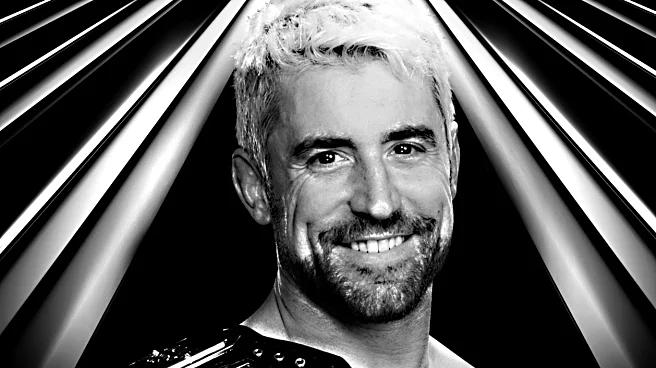What's Happening?
Pete Alonso, a prominent figure in Major League Baseball and the face of the New York Mets since 2019, has opted out of his contract and announced his intention to test the free agency market. Alonso, known
for his power hitting, has been a cornerstone for the Mets, contributing significantly with 170 hits, 38 home runs, and 126 RBIs in the last season. Despite his impressive performance, there is speculation that the Mets might let him walk unless he agrees to a team-friendly deal. This decision comes amid discussions about Alonso potentially changing his role from first baseman to designated hitter, a move he has been reluctant to make.
Why It's Important?
Alonso's free agency status is significant for the Mets and the broader MLB landscape. As a top power hitter, his departure could leave a substantial gap in the Mets' lineup, challenging the team to find a replacement with similar production capabilities. The decision also highlights the financial and strategic considerations teams face in retaining star players. Alonso's situation underscores the balance between player roles and team needs, particularly in the context of evolving player positions and contract negotiations. The outcome of Alonso's free agency could influence other teams' strategies in the offseason market.
What's Next?
The Mets and other MLB teams will closely monitor Alonso's free agency journey, weighing the benefits of acquiring a player of his caliber against the financial implications. Discussions around Alonso's willingness to change positions could play a crucial role in his future team dynamics. Teams interested in Alonso will need to consider their lineup flexibility and financial capacity to accommodate his demands. The decision-making process will likely involve negotiations that address both Alonso's career aspirations and the strategic goals of potential suitors.
Beyond the Headlines
Alonso's free agency highlights broader trends in MLB regarding player mobility and contract negotiations. It reflects the increasing importance of player versatility and adaptability in maintaining competitive team rosters. The situation also raises questions about the long-term impact of player roles on career trajectories and team dynamics. As teams navigate these complexities, Alonso's case may set precedents for future negotiations involving high-profile players.










